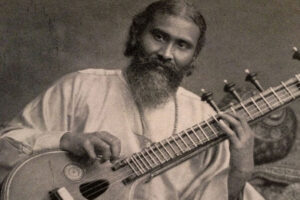[1-minute read]
Not long before a Chinese city that most of us had never heard of became Ground Zero for a novel coronavirus – you may have heard of it, and its Greek-lettered children – a small group of Ottawa women decided to raise the level of conversation in their beloved Baha’i community, and beyond it. H.H. and L.O. and some friends began a series of talks they called “Big Ideas: The Baha’i Faith and the Issues of Our Time”, starting with a discussion on climate change and inspired ways to cast light (and a little hope) upon this global crisis.
Now there have been 29 of these presentations, on subjects ranging from education to agriculture, from global governance to personal creativity, from racial justice to marital harmony. I love ‘em. (To be transparent: my bride gave the first one, and several friends have contributed their own. I am proudly and profoundly biased in favour of this project.) A recent BI talk by the intriguingly named Justice St. Rain focussed on human suffering – how we should think about it, and how to respond to it.
Its title – shared with one of his books, which was subtitled “A Spiritual Guide to Growing Through Tests” – was simply Why Me? I wrote a brief summary of the thing; here I will say only that Mr. St. Rain urges us to believe in the basic benevolence of a parent-like Creator, and to seek understanding of the difficulties that life inevitably presents to us. (Simple! But not so easy. Not for me.)

Virtuoso and music scholar, too: The Mysticism of Sound and Music is among his books. (photo from ramdass.org)
Almost as a coda to an hour-long seminar, St. Rain introduced me (and perhaps most of his audience) to a Sufi musician and philosopher, the India-born Hazrat Inayat Khan (1882-1927), and cited the counsel below. It’s gorgeous: simple, persuasive and poetic. I thought you’d want to know.¹
“I asked for strength and God gave me difficulties to make me strong.
“I asked for wisdom and God gave me problems to learn to solve.
“I asked for prosperity and God gave me a brain and brawn to work.
“I asked for courage and God gave me dangers to overcome.
“I asked for love and God gave me people to help.
“I asked for favours and God gave me opportunities.
“I received nothing I wanted.
“I received everything I needed.”
